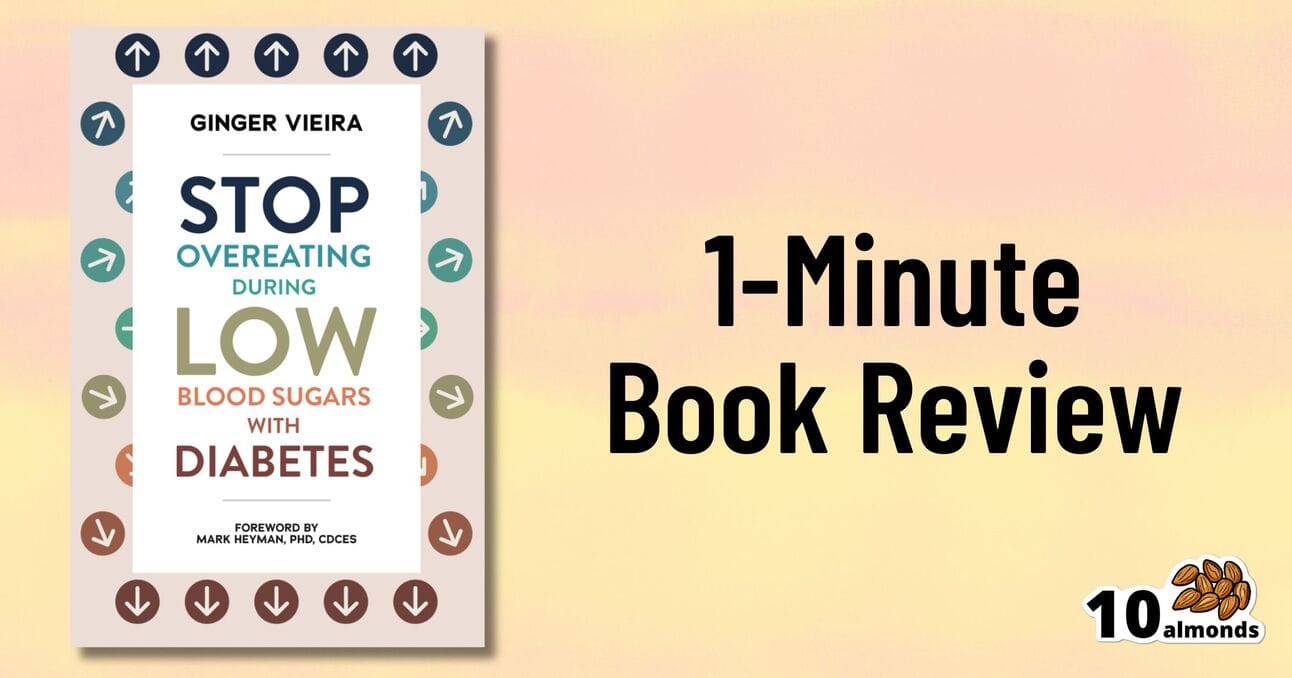Happy Monday 👋
A lot of people will say “you don’t need supplements if you have a well-balanced nutrient-rich diet”, and then not have a well-balanced nutrient-rich diet. Don’t fall into that trap!
In today’s email we cover “nontraditional” stroke risk factors, losing those last few pounds of stubborn fat, and not overeating when hypoglycemic.
Today’s sponsor Lumen is offering a way to learn about and keep track of your body’s metabolism; breathing into the device once per day gives it all the info it needs. As a bonus, 10almonds readers get 15% off with code “HEALTHWITHLUMEN”, so now’s the best time to check it out!
Today’s Main Feature
Don’t Get Caught Out By These “Nontraditional” Stroke Risk Factors
These lesser-known risk factors can increase stroke risk by 70% each:
Recommended Reading
Double Pneumonia?
After Pope Francis’s death this morning… What exactly is “double pneumonia”?
The Meds That Impair Decision-Making
This is a big deal, because it can affect healthcare decisions, financial decisions, and more—greatly impacting quality of life:
Watch and Learn
How to Lose That Last 5–10 lbs Of Stubborn Fat
Losing the last 5–10 pounds is often much harder and slower than people expect. As you get closer to your goal, progress tends to stall, and the temptation to push harder—by slashing calories or overtraining—can actually backfire. This approach often leads to burnout, metabolic disruption, and ultimately, regaining the weight.
So, what to do instead?
Prefer text? The above video will take you to a 10almonds page with a text overview, as well as the video!
Our Sponsors Make This Publication Possible
Unlock the Power of Your Metabolism
Did you know metabolism is at the core of every process in your body? From the steps you take to the energy you feel, it’s your body’s engine. Lumen helps you breathe into better metabolic health by giving you personalized insights into your metabolism.
Whether your goal is weight management, improved athletic performance, or enhanced energy and longevity, Lumen empowers you to make smarter, data-driven decisions that optimize your health.
With personalized guidance and actionable tips, Lumen helps you optimize your health and stick to your wellness goals. Whether you’re preparing meals or planning workouts, Lumen gives you the tools you need to succeed.
Make this the season you achieve your goals: order now and get 15% off using code HEALTHWITHLUMEN:
Please do visit our sponsors—they help keep 10almonds free
This Or That?
Vote on Which is Healthier
Yesterday we asked you to choose between kiwi and orange—we picked the kiwi (click here to read about why), as did 71% of you!
Now for today’s choice:
Click on whichever you think is better for you!
Bonus (Sponsored) Recommendation
We know 10almonds readers love learning in a convenient, bite-size fashion. Check out this list of other newsletters our readers also enjoy!
One-Minute Book Review
Stop Overeating During Low Blood Sugars With Diabetes: Learn how to manage hypoglycemia with type 1 and type 2 diabetes – by Ginger Vieira
We previously reviewed this author’s “Exercise With Type 1 Diabetes”, and now it’s about managing blood sugars (with either of the most common types of diabetes) without doing the rollercoaster that otherwise often happens.
And why does it happen? As she describes, while you are hypoglycemic, your body is crying out for carbs, certain it will die if you don’t eat every carb in sight. And you know, even while hypo, that the current 50mg/dL will soon be 300mg/dL if you’re not careful, but your body insists to carry on anyway.
How, then, to overcome this? That’s the topic that that this book’s 8 chapters cover, because in practical terms there’s a lot more to it than “just say no”, which has rarely been a viable response to any problem, and doesn’t help here, either.
Instead, we learn about what keeps this vicious cycle going, and how to interrupt it. How to work through the panic and the stress, and how to interrupt the twisted relationship with food that’s likely arisen. Most practically, she also talks us through treating lows with new guidelines, how to understand glucagon metabolism, and other technical aspects to round off the equally important more psychological matters.
The style is direct and personal, yet written with the confidence that comes from her expertise. It is, it’s worth noting, on the absolute lightest end of pop-science, but that’s understandable as the author is not a career scientist, just someone with T1D who’s become an expert out of necessity.
Bottom line: if you or a loved one has diabetes and struggles with this problem, then this book can help a lot.
Penny For Your Thoughts?
What did you think of today's newsletter?
Wishing you the most well-informed start to the week,
The 10almonds Team








